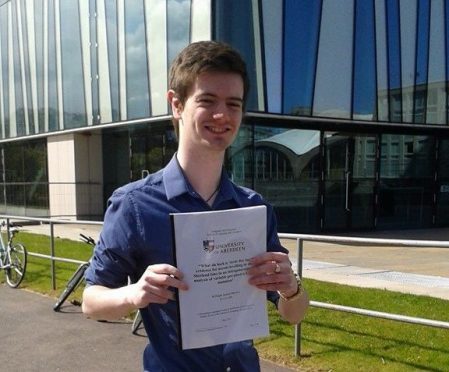The Shetland accent could die out within the next 30 years, according to a new dissertation study by an Aberdeen University student.
James Brown is a language and linguistics student whose mother is from Hamnavoe in Burra, but he grew up in Aberdeenshire.
He first became interested in the accent change while listening to a radio interview with a girl in her 20s who had a similarly neutral accent to his.
During his research, Mr Brown examined recordings from a number of Shetland speakers spanning all ages.
He then compared the recordings to Scots of a similar age and found that younger speakers from Shetland sounded more similar, particularly with how they pronounced certain vowel sounds in words.
Mr Brown used a study done by his uncle, John Tait, to prove that the accent is changing.
He said: “When Scots say ‘bat’ and ‘bad’ they use the same AH vowel for both words, but Shetlanders say ‘bad’ with something more like an EH sound. This happens for a few other vowels as well. My uncle called this process ‘soft mutation’. My study proves that younger speakers use soft mutation far less than older speakers.”
Mr Brown believes that the apparent loss of accent is due to immigration to Shetland from mainland Scotland in the 1970s, amid the oil boom.
Mr Brown added: “Accents always change for a reason. That girl’s mum wasn’t from Shetland so that’s when I started thinking that immigration after the oil boom in the 1970s was having a noticeable effect on the Shetland accent.
“I believe the accent changed because Shetlanders married non-Shetlanders and had children whose accents were a mix of the two. This continues until the accent disappears.”
